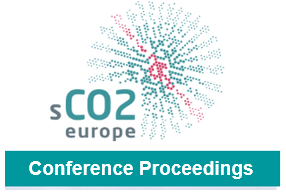Configuration of a flexible and efficient sCO2 cycle for fossil power plant
As part of the sCO2-Flex project, funded from the European Union’s Horizon 2020 research and innovation program under grant agreement N° 764690, the consortium has set about developing a fossil fuel power cycle that allows both more flexibility and less emissions than currently operating power cycles. For this objective, the consortium has decided to work on a supercritical CO2 (sCO2) cycle in order to be able to gain in modularity in terms of size reduction, in efficiency because it is more efficient than a water-steam cycle, in flexibility because the design will be simplified and above all will take into account future constraints from the design stage.
EDF was responsible for providing the consortium with the most interesting fossil fuel cycle configurations from a flexibility and performance point of view. To this end, an iterative approach has been adopted and will be presented later in the paper.
First, 21 different cycle configurations were modelled in order to assess their impact on the performance for coal power plant application. Based on the expertise of the EDF R&D team, a selection of a few cycles has been made to be presented to different experts in order to determine: the industrial capacity to obtain equipment with the expected performance, the operability of this type of cycle according to these technical characteristics (the more complex a cycle will be to operate, the greater the risk of failure).
In a second step, all the current flexibility constraints were synthesized for the cycles in operation, as well as the influential factors to guarantee this flexibility (operating ramp of such a component, constraints related to the reliability of a component...). Then, on the basis of future energy mix scenarios and interviews with operators, we also drew insight about the future evolution of these constraints.
Finally, on the basis of the first selection of cycles and future flexibility constraints, cycle configurations were selected within the consortium, taking into account also the potential industrial difficulties and costs for the development of components, in particular for the boiler, which is a key element for future markets for this type of cycle.
Vorschau

Zitieren
Rechte
Nutzung und Vervielfältigung:
Dieses Werk kann unter einer Creative Commons Namensnennung 4.0 Lizenz (CC BY 4.0)
Creative Commons Namensnennung 4.0 Lizenz (CC BY 4.0)
genutzt werden.
